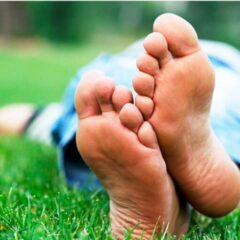1. Light Change
Make sure all your light bulbs are compact fluorescents or LED – these use much less power, generate much less heat, last longer and with LEDs, don’t use heavy metals in the manufacturing process. Replace electro-magnetic ballasts with electronic ballasts, which are more energy efficient, operate at a higher frequency and produce almost no detectable flicker or noise.
2. Better taps
Make sure all your taps have flow aerators on them. They are cheap, easy to install and save water and energy, without affecting water pressure.
3. Empty Buildings
During after hours and overnight, many buildings still leave lights and appliances on, wasting huge amounts of power, money and producing unnecessary emissions. If your office or building has a service manager, request them to turn off or down lights, appliances and climate control systems. Most of this can even be done by cleaners when they finish work. There is absolutely no point for running heating and cooling systems when buildings are empty.
4. No Standby
Make it a company policy for staff to turn off their computers, laptops and all equipment and appliances when they leave work, and not leave equipment on standby. Some IT systems can be programmed to do this automatically. For a step-by-step guide, visit www.energystar.gov.au/consumers/stepbystep.html
5. Sun & Gas
Solar hot water and solar electricity are a must these days for saving money and resources and reducing emissions. If solar is not an option, choose gas instead of electricity.
6. Hot Water
Most bathrooms in offices have hot water. Research shows that it is rarely used. Consider shutting off hot water in your bathrooms, and if building, don’t install it in bathrooms. It really does save water, energy and money.
7. Turn It Off
Get into the habit of turning off lights, fans and other appliances everytime you leave a room or are not using them. Install timers and sensors if possible. Help staff by placing little polite signs and stickers near switches and on appliances.
8. To a Tea
Leaving tea/coffee urns and hotwater boilers on continually just wastes energy. For small offices, a quick-boil jug is the best option for hot water, and use timers to switch on urns and boilers early in the mornings and off at the end of the day (and off all weekend if no one is working). Always choose energy efficient appliances and systems.
9. Flat Screens
LCD screens are easier on your eyes and use a lot less power than the old CRT screens. Choose energy efficient options when buying new TVs and always responsibly dispose of old TVs through Byteback Australia outlets.
10. Desk Lamps
Install ‘task’ lighting where possible – for example, an efficient desk lamp instead of unnecessary overhead lights or light bays, not suitable for just one person. Lamps are often easier on your eyes also.
